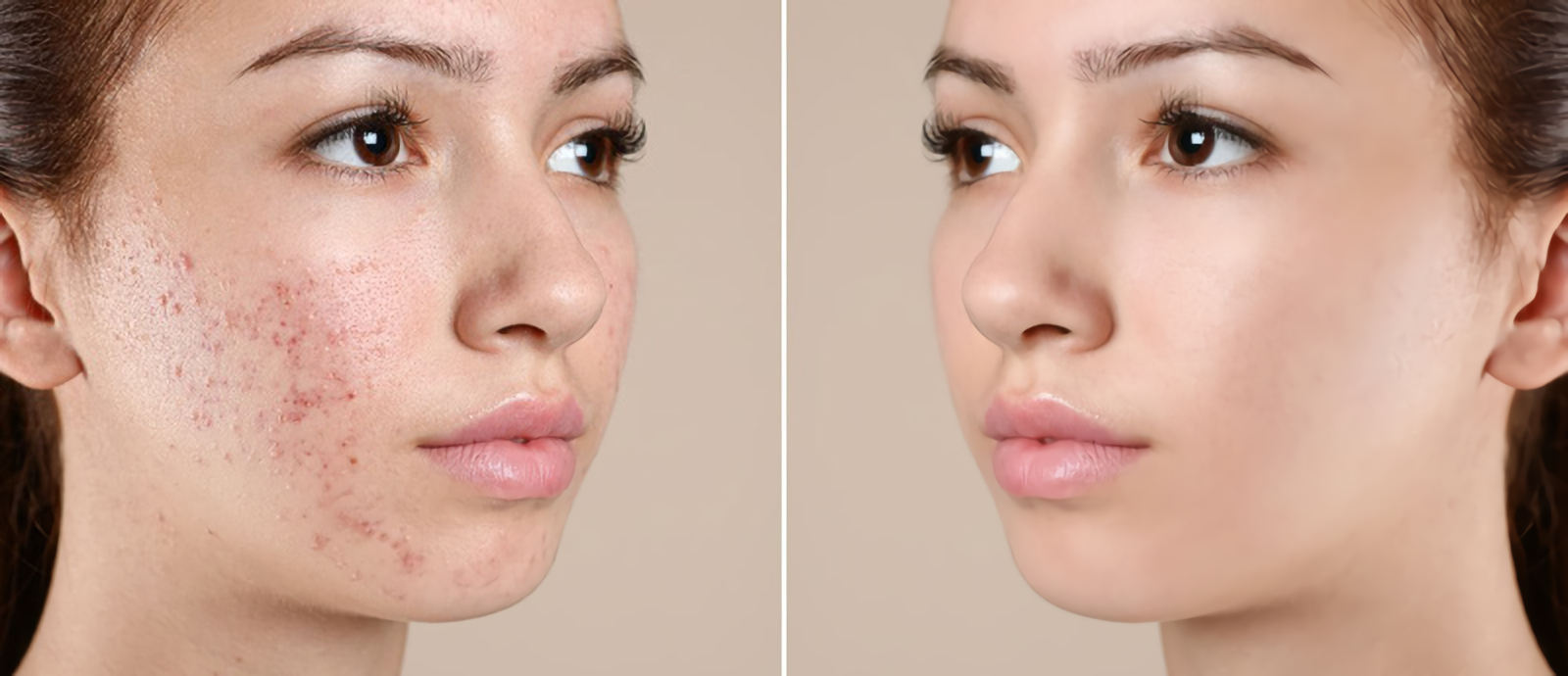How To Deal With Acne: First-Timer Guide
 |
How To Deal With Acne For The First Time: A Beginner's Guide
Acne is a troublesome skin condition that most often appears around adolescence, but it can occur at any age. If you're suffering with breakouts and blemishes for the first time, this beginner's guide will teach you everything you need to know about managing acne-prone skin.
Acne Triggers to Be Aware Of Trying to figure out what's causing your acne and how to treat it is a good idea. Breakouts can happen for a variety of reasons and factors, but here are a few of the most prevalent ones:
Puberty, menstruation, pregnancy, and menopause all cause changes in hormone levels.
While stress isn't the main cause of acne, it can aggravate it.
Diet – foods with a high glycemic index, such as dairy products, can cause blood sugar levels to spike.
Drugs include corticosteroids, anticonvulsants, lithium, and some steroids.
It's not always clear what causes acne, but any lifestyle, nutrition, or skincare changes you've made could be contributing.
Treatments for Acne That Work
There are numerous acne treatments available. From creams and lotions to face cleansers, toners, and acids, figuring out what will work for your skin can be tricky. Many people find that using these key therapies and components to treat and clean it up is effective.
Azelaic Acid
Azelaic acid is a topical medication that can help reduce acne scarring and is used to treat a variety of skin conditions, including acne. But, what effect does azelaic acid have on your skin? It's antibacterial, which means it can kill acne-causing germs and prevent whiteheads and blackheads.
It also reduces the production of keratin skin cells, which can block pores. Azelaic acid has anti-inflammatory properties, which can help reduce the redness and irritation caused by pimples. Overall, azelaic acid can help with acne treatment and breakout prevention, resulting in healthier and smoother skin.
Salicyclic Acid.
Salicyclic acid-containing medicines are yet another effective acne treatment option. It exfoliates your skin by dissolving dead skin cells that clog pores and cause spots, making it perfect for blackheads and whiteheads.
When used on a regular basis, salicyclic acid can reduce the amount of breakouts, although results may take several weeks to appear.
Benzoyl peroxide
One of the most effective treatments for acne is benzoyl peroxide. It has antibacterial properties that help remove acne-causing germs from the skin in addition to absorbing excess oil and breaking down dead skin cells. As a result, it's an excellent technique for treating current outbreaks while also preventing future issues.
Blonde haired woman in her late twenties. a close-up of her face on the side where she suffers from severe adult acne
 |
| How To Deal With Acne First-Timer Guide |
A Beginner's Guide to Acne Treatment
Suggestions for Acne Treatment
In addition to employing efficient acne treatments, there are a few more things you may do to enhance your skin:
Check to see if your skin is dry.
If your skin is greasy and breaking out, it can be tempting to wash it more regularly or use treatments to dry it out. This, however, may worsen your acne. When your skin is overly dry, it generates more oil, and harsh treatments irritate it, resulting in pimples.
Only wash your face twice a day or after an exercise if your skin is sweaty. Use a face wash designed for acne-prone skin as well.
It's critical to keep your skin hydrated, even if it seems oily. To keep your skin moisturized without clogging your pores, use a moderate, oil-free moisturizer.
Keep the Environment Clean
Bacteria can quickly collect on towels and bedding, especially pillowcases that come into touch with your face frequently. This could lead to more breakouts by increasing the quantity of bacteria on your skin. As a result, it's vital to change your bed linens and towels at least once a week.
Wipe your phone screen, as well as your make-up brushes and sponges, on a regular basis because they could harbor acne-causing bacteria.
Picking Spots Is Not A Good Idea
It may be tempting to pick at spots and flaws, but this will only make them worse. If you touch or pick at your face, you're more likely to spread bacteria. Furthermore, popping a spot can lead to infection or scarring, both of which take longer to heal.
There are various things you can do to improve your skin and avoid future breakouts if you've recently been diagnosed with acne. Remember that there are no quick fixes for acne, so focus on creating a good skincare routine and allowing acne treatments time to work.
Tags:
Skin Care Tips
